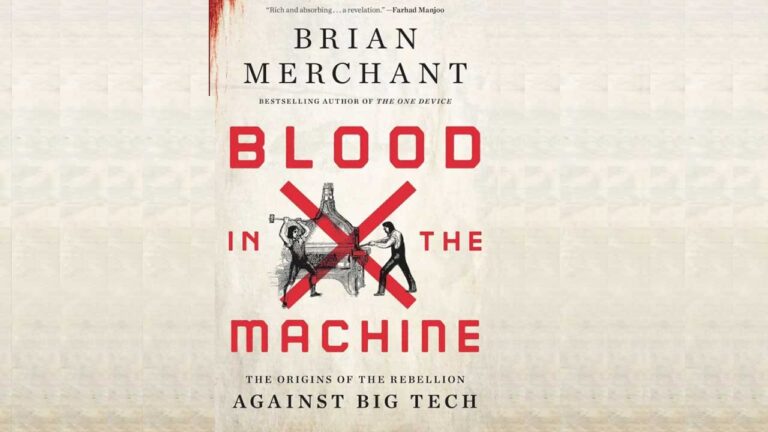In this ever-changing world we live in, I’m always on the lookout for books that help me think a little more deeply about the challenges of today’s day and age, particularly when it comes to how technology influences our lives.
Recent books that have helped shape my understanding include “Uncanny Valley” by Anna Wiener, which pierced the bubble of the tech industry and made me question how many of those emperors might be naked.
“Verified: How to Think Straight, Get Duped Less, and Make Better Decisions about What to Believe Online” by Mike Caulfield and Sam Wineburg armed me with strategies to resist being taken in by the flood of untruths flowing freely through social media. And most recently, Kyle Chayka’s “Filterworld: How Algorithms Flattened Culture” made me sensitive to how much of what I consume in media is the product of algorithmic sorting, and how I need to be more cognizant of when I’m letting my tastes be swayed by aggregation.
To this group, I’m adding Brian Merchant’s “Blood in the Machine: The Origins of the Rebellion Against Big Tech.” This book is primarily a kind of corrective history of the Luddite movement, but in Merchant’s hands, it is also a history that helps us better understand the present.
Until a recent round of layoffs, Merchant was a tech columnist at the Los Angeles Times, frequently taking contrarian positions regarding technological advancement, questioning if some of these advancements were truly beneficial to society. In Merchant’s retelling of the story of the Luddites, he seeks to expand and complicate the popular image of a group of people who stood in the way of technological advancement out of misplaced fear or superstition.
In reality, Merchant shows how the Luddites were not blanket anti-technology. These textile workers of the early 19th century were instead reacting against the thoughtless replacement of their high-quality human labor with inferior (but cheaper) machine work. Their concerns were literally existential, not backward or superstitious. Technology was coming to take their livelihoods and their way of life without any offer of compensation in return.
Told through a series of short narratives, each illustrating key moments in the movement, Merchant brings alive the past, these people and their motives, including a person who never existed, “Ned Ludd,” a legend said to have destroyed his factory owner’s machinery that came in to stand as a symbol for the movement.
I lost track of the times I wrote “I didn’t know this” in the margins.
In the latter parts of the book, Merchant juxtaposes the history of the Industrial Revolution with the technological disruption of today, showing both how much and how little has changed. He uses the example of Doug Schifter, a man who had chauffeured people around Manhattan since 1981, logging more than 5 million miles. But after the arrival of Uber, he found himself driving 120 hours a week to try to make a living before finally realizing the job he’d done for 40 years was gone. In a public act of protest, Schifter took his own life.
We may love the convenience of Uber, but Merchant’s book makes us sensitive to the costs.
There’s no simple solution here, and Merchant doesn’t pretend to believe otherwise, but the conclusion of his book suggests we may be courting a literal rebellion if we’re not willing to extend care and consideration to the people who are shunted aside in the name of progress.
Who knows? Those people may be us.
John Warner is the author of “Why They Can’t Write: Killing the Five-Paragraph Essay and Other Necessities.”




